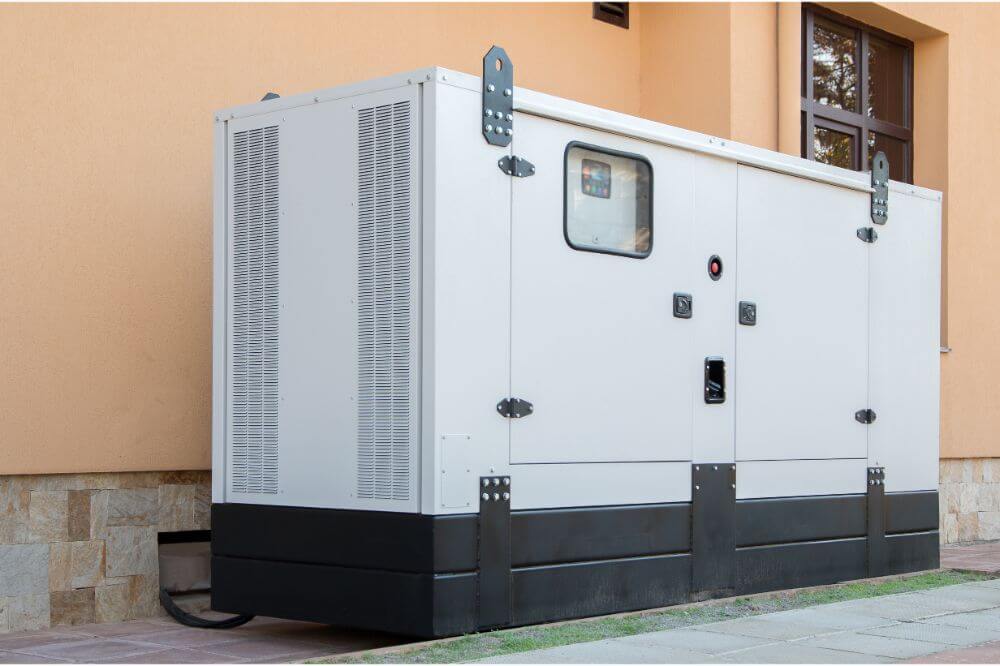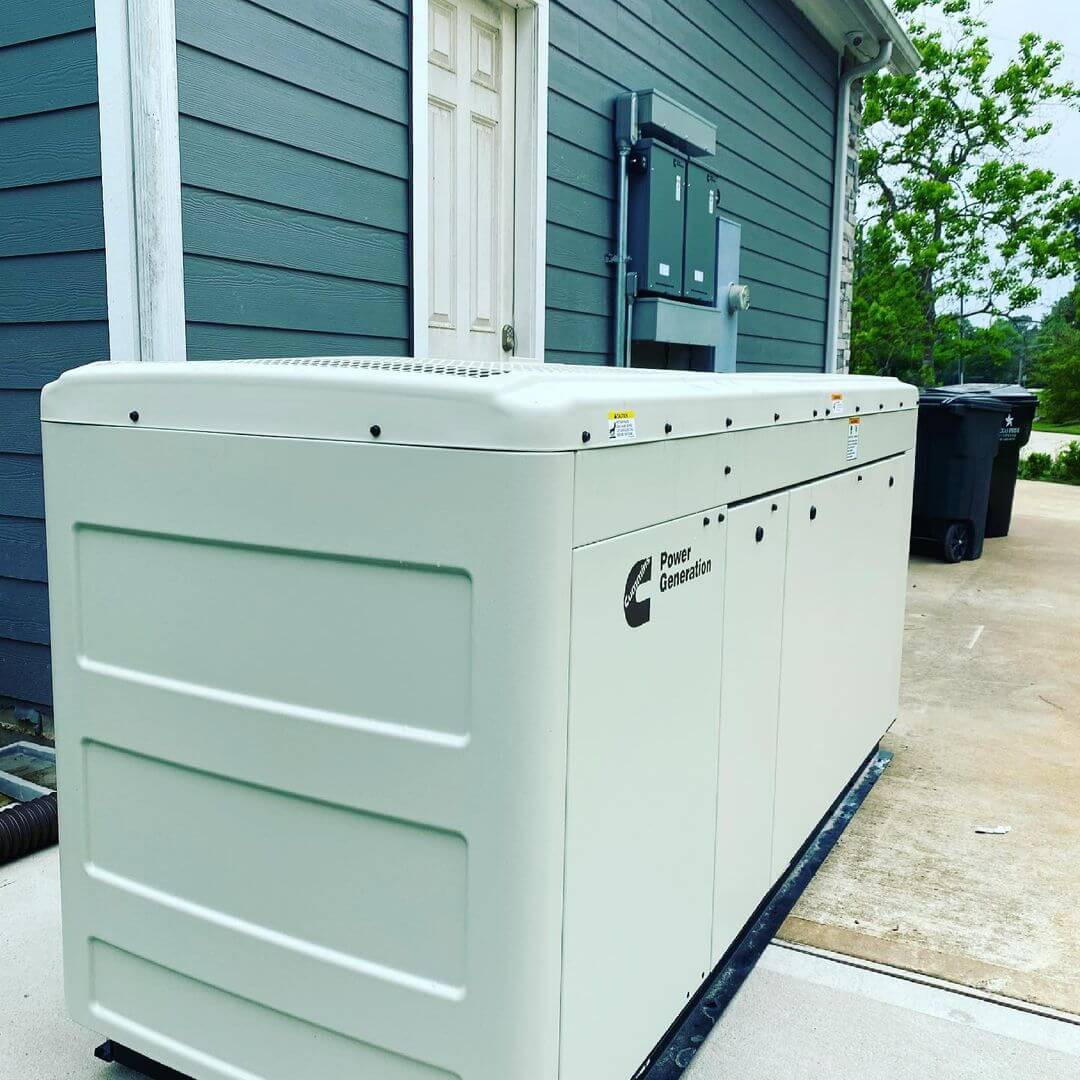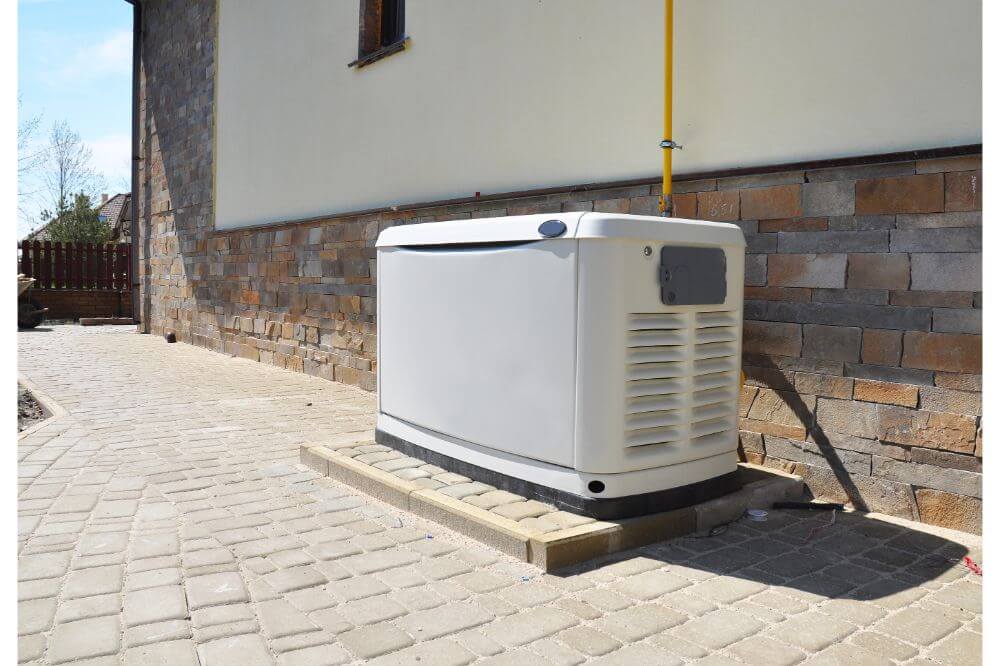Is a Whole House Generator Worth it?
If you are wondering whether a whole house generator will increase the value of your home, the answer is a resounding yes!
But why, you ask? Well, apart from being an excellent temporary power source that will restore any power interruptions from the grid, a whole house generator will also increase the value of your property.
Does a Whole Home Generator Add Value to Your Home?
For those of you who don’t know, whole-home generators are also known as standby generators.
They can be very useful, not just for providing your home with electricity when the power grid fails, but also for increasing the value of your home.
There are consumer reports that confirm that the installation of a whole-home generator can increase your home’s value by 3% to 5%.
So, if your home is worth a cool $1,000,000 before a generator is installed, after you install it, the home may be worth up to $1,050,000. That’s a big difference.
Moreover, it has been shown that whole-home generators do make for good investments, as they can pay off up to 150% of the original investment.
So, if you pay $12,000 to have it installed, it can increase your home’s value by up to $18,000.
What is the Average Cost to Have a Whole House Generator Installed?
Something which you may not be too happy about is that installing a whole home generator can cost a good chunk of change. Here we want to focus on both the cost of the initial purchase and the installation cost.
You can expect to spend anywhere from $1,440 to $7,240 to set up a whole home generator, with the average cost being roughly $4,275, both for the unit and the installation.
First, let’s take a look at the average cost of the generator to begin with, which is generally based on the specific type of whole home generator.
Now that we have considered the unit’s initial cost, the other consideration is how much the installation itself will cost.
On average, you can expect to spend between $500 and $3,000 for the installation process. So, what factors affect this installation cost?

How Big of a Generator Do You Need to Run Your Entire Home?
It has been said that you can run most of your essential household equipment with a generator that has been rated at 5,000 to 7,500 watts.
Some of the equipment this includes is a sump (well) pump, a refrigerator, and lighting circuits. With 7500 running watts, you can power all of these appliances simultaneously.
To calculate what size generator will be best for your needs, you must consider the generator’s power output. This is measured in watts. Make a list of all the things you need to power in your home.
Make sure to include all your critical appliances that still need to run even during a power outage.
Starting Watts: this is how much power is needed to start the appliances up. If the appliance has a motor, then it will typically require more wattage to start up. A good example of this would be a window air conditioner unit.
Running Watts: this is also known as rated watts and is how much energy is needed to run the appliance after the initial startup.
Note, you’re best to correctly size a generator for your needs and choose entirely based on those electrical load calculations.
Is a Home Generator a Good Investment?
Most people would agree that even though the initial cost of the whole home generator and the installation can be quite high, these generators tend to be worth the money and the trouble. Why is this the case?
As we discussed in the first section, whole-home generators can increase your home’s value by up to 5% and provide a return on your investment of up to 150%. For this reason alone, whole-house generators are good investments.
Something else to consider is whether or not you live in an area where the power goes out a lot. If you rarely or never suffer from power outages, getting a whole home generator may not make much sense.
However, if you suffer from frequent power outages, then it can be very much worthwhile.
Imagine that the power goes out three times a year, and every time it does, you have hundreds of dollars worth of food that spoils in your fridge or freezer. Food costs are a big factor to consider.
Moreover, if you happen to work from home, you need your internet and electricity to make money.
If the power is out for a couple of days, those are two good working days where you didn’t make money. This is not a problem that you will have if you have a whole home generator. We will touch on this a bit more below.
Other Reasons to Purchase a Generator
Still, need more reasons to purchase a generator? Always consider the reason you want to purchase a generator in the first place and then tack on these other important considerations:
Sump Pump
Do you have a sump pump? Then you want to make sure it is powered to prevent any flooding in the home.
A sump pump gathers all excess water and collects it into a sump pit. If the water rises to a level that has been predetermined, the pump will automatically begin to dispose of the water and transfer it into the sewage drain.
Without power going to your sump pump, you will not be protected against flooding, and your lovely-looking basement will be an almighty mess. Not ideal.
Home Business
Maybe you run a business from home or work from home. If this is the case, then you need the power to work.
If there is a power outage, you obviously can’t work, and there will be a delay in your schedule. A whole house generator can help you avoid this problem and can help you maintain a steady work schedule even during a power outage.
Electric Medical Devices
Perhaps you need medical devices, and they use electricity. In this case, a backup generator can turn out to be a necessity.
If you have critical medical devices that rely on power, you want to make sure to have a backup power source just in case there is an outage.
Well Water
If you have well water, then you probably already know that you lose water when you lose power because the water pump runs on electricity. A whole house generator can ensure that you have running water until the power comes back on.
How Long Do Whole House Generators Last?
Yes, a whole home backup generator is usually considered a worthwhile investment, but with all of this money you are spending, how long can you expect these units to last?
On average, you can expect a whole home generator to last anywhere from 20 to 40 years, with the median “shelf life” being somewhere around 30 years.
In the grand scheme of things, if it costs you around $5,000 to purchase and install the generator, that’s not a whole lot considering that it can last for up to 40 years. Of course, how long the generator lasts will depend on various factors, including the following.

How Often It Runs
To ensure that your generator has a long lifespan, it should be used for at least half an hour per week. They need to be “exercised.”
How Many Appliances the Generator Has to Power Will Make a Difference Too
If the generator is under a lot of stress (trying to power too much at once), it won’t last as long as it is only used for the most pressing lights/appliances.
Maintenance Is Key
If you maintain your whole home generator properly, it will go a long way in increasing its overall lifespan.
In Conclusion
A standby generator is most certainly something you should consider if you’re serious about purchasing a temporary replacement power source for your home.
While the initial cost of the standby generator (plus installation) might be somewhat off-putting, the long-term benefits and the added value to your home will surely make it worth it in the long run.
Portable and inverter generators have their advantages and can provide an alternate power source for essential home items if you’re on a budget, but they don’t compare to owning a standby generator.




